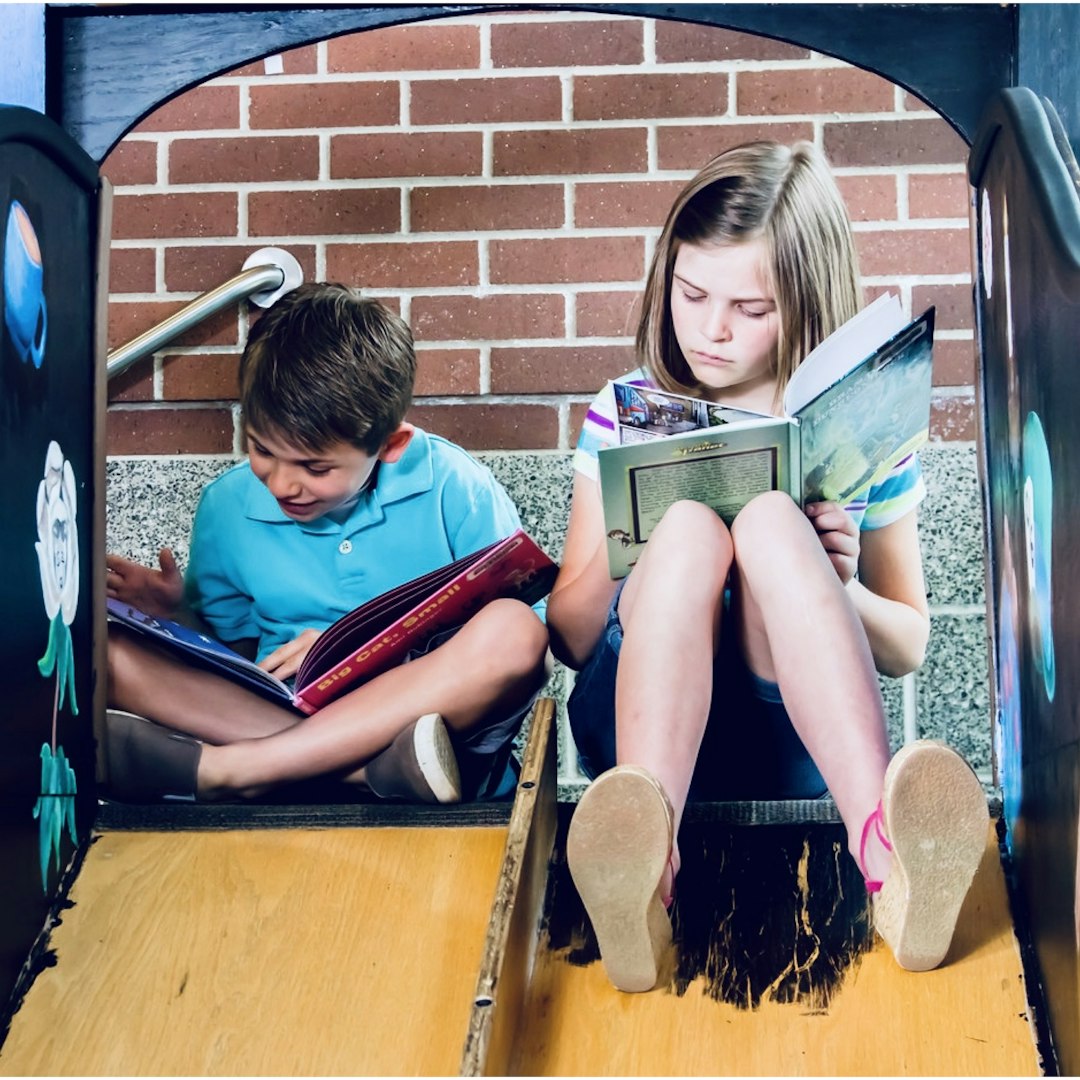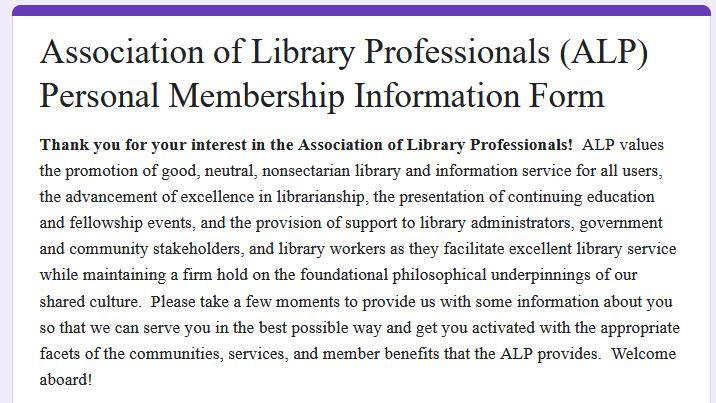Introducing the Association of Library Professionals (ALP)
Providing informational services in a pluralistic society
The newly formed Association of Library Professionals promises to help advance librarian professional concepts such as:
institutional neutrality, open inquiry, individual liberty, freedom of thought, (constitutionally-delimited) freedom of speech, and intellectual freedom
While continuing, as is common in librarianship professional practice,
to acknowledge, in the case of minors, the legitimate need for reasonable constraints on these freedoms, such that public libraries spatially organize their contents according to age range and reading levels with regard to the presence of adult themes and overt depictions of violence and sexuality, but allowing access to such content under supervision of a parent or guardian; and in the case of school libraries, accepting the responsibility to act in loco parentis and, therefore, with a duty of care and due caution regarding the availability of such content

Interested library professionals can read the twelve foundational purposes of the ALP and sign up to become members.
The ALP recognizes it is important to:
encourage the identification, development, and maintenance of effective library services which will meet the informational, cultural, educational, and recreational needs of individual library users in a shared pluralist society comprising many different traditions, faiths and values
The ALP notes that libraries are serving a pluralist society. This concept of pluralism has been described in various Heterodoxy in the Stacks posts. For example, when writer Craig Gibson discussed in “Green Shoots and Civic Dialogue: In Search of a New Library Telos” the need
for a more engaged, less monocultural, more vibrant librarianship
and then this concept was expanded on through a discussion around the importance of valuing pluralism in librarianship in these three Heterodoxy in the Stacks articles:
Library Neutrality and Pluralism: A Manifesto
Why library neutrality isn’t an abstract principle, but vital to serving the interests of pluralistic societies.
Practices of Pluralism: A Report From the Field
Philosophical Foundations for a Pluralist Librarianship
The importance of pluralism is being studied at Pluralism and Civil Exchange Program at the Mercatus Center at George Mason University.
Heterodoxy in the Stacks writer Craig Gibson notes that “Pluralism as an ethos” is oriented towards action and building and creates
a civic culture that reaches across divides, increases mutual understanding instead of fomenting polarization, and creates conditions for creating shared meaning
This action and building ethos is exemplified in the creation of the Open Inquiry Toolkit by Craig Gibson, Sarah Hartman-Caverly and Christina LaRose. This toolkit
provides new learning design resources for the higher education community. The toolkit is unique for its two-pronged approach that develops intellectual virtues and promotes awareness of cognitive biases.
Given the deep discussions around pluralism in librarianship and evidence of how embracing pluralism as a value can lead to action and creation, such as in the birth of the Open Inquiry Toolkit, it will be interesting to watch what comes out of the Association of Library Professionals. I hope many heterodox-minded readers join the ALP and that some who do will be inclined to report back here. Heterodoxy in the Stacks welcomes new contributing writers.
To promote viewpoint diversity, Heterodoxy in the Stacks invites constructive dissent and disagreement in the form of guest posts. While articles published on Heterodoxy in the Stacks are not peer- or editorially-reviewed, all posts must model the HxA Way. Content is attributed to the individual contributor(s).
To submit an article for Heterodoxy in the Stacks, send an email with the article title, author name, and article document to hxlibsstack@gmail.com. Unless otherwise requested, the commenting feature will be on. Thank you for joining the conversation!


The founding members have been hard at work-- bravo!
Is there a website for the organization that provides more information?